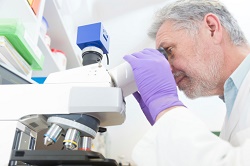Pavilion Publishing and Media Ltd
Blue Sky Offices Shoreham, 25 Cecil Pashley Way, Shoreham-by-Sea, West Sussex, BN43 5FF, UNITED KINGDOM
 People with advanced pancreatic cancer in England whose first chemotherapy treatment has not been effective, or stopped working, are being denied access to a new second treatment option on the NHS following an announcement from NICE.
People with advanced pancreatic cancer in England whose first chemotherapy treatment has not been effective, or stopped working, are being denied access to a new second treatment option on the NHS following an announcement from NICE.
NICE has turned down the promising new treatment pegylated liposomal irinotecan (Onivyde), which is a second line treatment for people with advanced pancreatic cancer, and which could allow patients to live for twice as long as they would otherwise. NICE said it would not approve Onivyde for use on the NHS due to its high cost, and because its benefits were similar to that of other existing treatments. NICE assessed Onivyde after it was first licensed for use in October last year.
Pancreatic Cancer UK called the announcement “very disappointing news”, as there are currently very few treatment options for the disease, and 80 per cent of patients are diagnosed at an advanced stage. Survival rates have barely improved since the early 1970s.
People affected by the disease and the wider public are being urged to sign a petition calling on the bodies responsible for approving treatments on the NHS to give people with pancreatic cancer fair access to life extending treatments, at www.pancreaticcancer.org.uk/everymonthmatters. Over 2,500 people have signed the petition so far.
Research has found that patients being treated with Onivyde lived on average two months longer than they would have without the treatment. Someone with advanced pancreatic cancer will on average live for just two to six months.
Alex Ford, Chief Executive at Pancreatic Cancer UK, said: “This news is a bitter blow to patients with advanced disease in England, who are now unable to access a promising new treatment as a second line option on the NHS. Studies have shown that Onivyde could allow patients the chance of living for twice as long as they would otherwise, allowing families precious and unforgettable extra time together.
“The enormous difference that this time could make to families should be at front of mind when treatments are being considered for NHS use, as we firmly believe this would lead to more new and effective drugs getting the go-ahead. It’s vital that pancreatic cancer patients have every possible treatment option open to them, because every month matters to people affected by this tough disease.”
Ali Stunt, Chief Executive at Pancreatic Cancer Action, said: “Onivyde is a significant step forward in the management of advanced pancreatic cancer. It is very disappointing that it is not being made available to patients based on economic grounds, but, we hope NICE, NHS England and the manufacturer can find a way of making this treatment available, which offers real hope to patients for whom initial chemotherapy treatment has been unsuccessful.”


